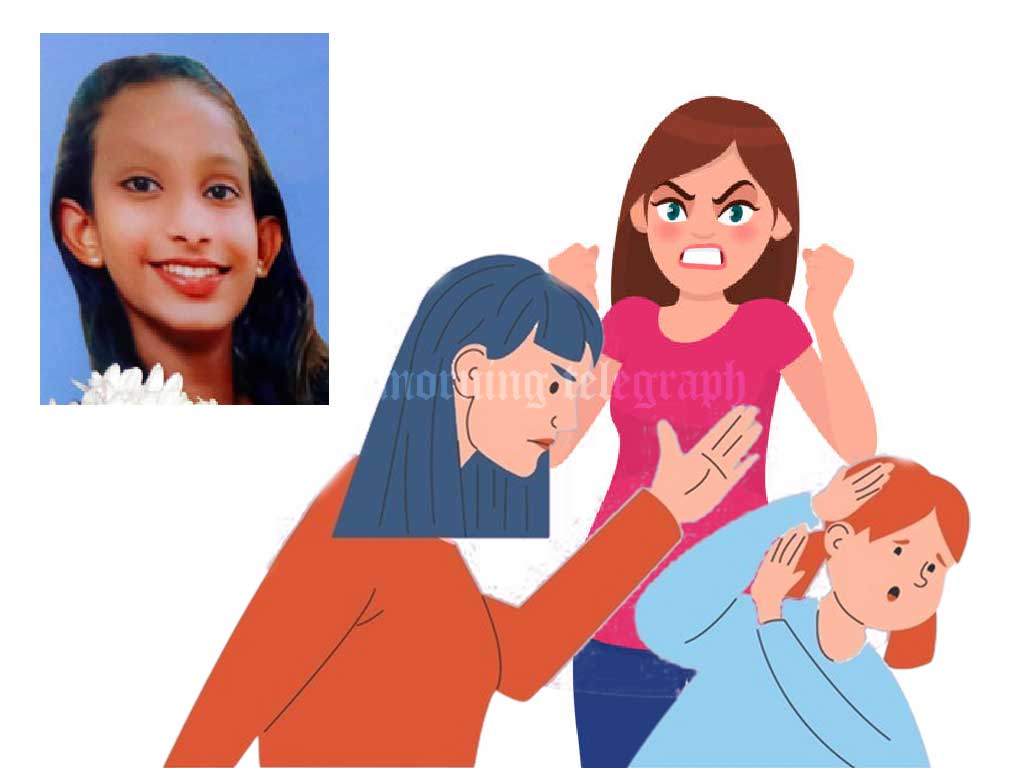
The tragic death of 16-year-old Ramisha Dinithi Thamel, a Grade 10 student at Martin and Forest College in Wennappuwa, has sparked national outrage and critical conversations about the role of teachers and the use of corporal punishment in schools. Ramisha’s death has highlighted the severe consequences of outdated disciplinary practices and raised urgent questions about the accountability of educators in safeguarding student well-being.
On August 9, Ramisha was reportedly subjected to brutal physical punishment by her class teacher and music teacher after she left class without permission and allegedly lied about it. Witnesses claim she was slapped and assaulted to such an extent that she fainted. Despite her visible distress, the teachers allegedly dismissed her condition as a ploy to avoid punishment and failed to seek timely medical assistance. Ramisha remained unconscious for nearly an hour before her parents were called. She was rushed to Marawila Hospital, where she underwent emergency surgery for a ruptured blood vessel in her brain. Despite months of treatment and multiple surgeries, Ramisha succumbed to her injuries on November 13.
Her grieving mother expressed frustration and anger, questioning why the teachers did not take her daughter’s condition seriously. The incident has drawn attention to systemic issues within schools, particularly in institutions serving children from low-income families, where the balance between discipline and care appears to have been grossly mishandled in this case.
The teachers involved in the assault were arrested and remanded, with one offering to contribute Rs. 300,000 towards Ramisha’s medical expenses. While this gesture has been acknowledged, it has done little to ease the anger and grief of her family and the public. Education Ministry Secretary Nalaka Kaluwewa stated that the ministry does not condone physical punishment and assured that necessary action would be taken against those responsible. Police investigations are ongoing, with the final postmortem report expected to shed further light on the case.
Ramisha’s death underscores the deep-rooted problem of corporal punishment in schools, despite existing policies that ban such practices. Experts argue that physical punishment not only causes physical harm but also has long-term psychological impacts on children, eroding their trust in educators and their sense of safety in the classroom.
The case has led to widespread calls for systemic reform, including stricter enforcement of laws prohibiting corporal punishment, training for teachers on alternative disciplinary methods, and awareness campaigns to educate parents, teachers, and students about the harmful effects of such actions. There is also an urgent need to establish channels for students to report abuse without fear of retaliation and to ensure accountability mechanisms are in place to prevent similar incidents in the future.
As investigations continue, Ramisha’s tragic story serves as a stark reminder of the critical responsibility educators have in fostering safe and supportive environments for students. Her death must be a catalyst for meaningful change, ensuring that no other child suffers a similar fate due to excessive and outdated disciplinary methods. The loss of Ramisha Dinithi has left a profound void, but it also presents an opportunity for society to confront and address these systemic failures in education and child protection.




